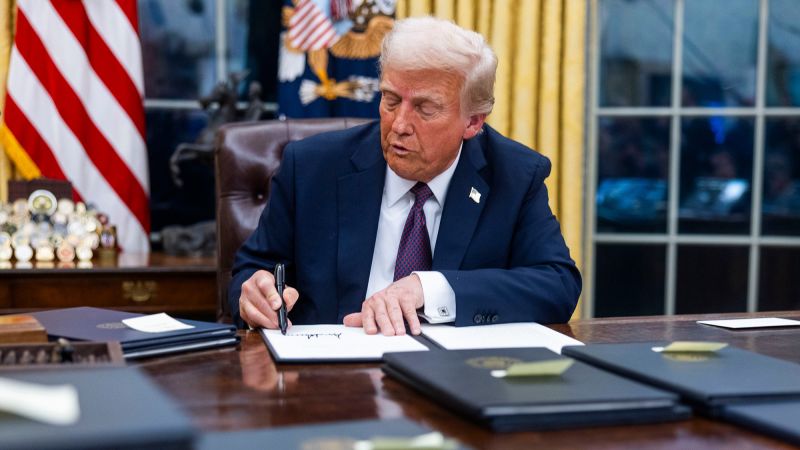Federal Judge Halts Trump Administration's Plans to End Special Status for Venezuelans and Haitians

Introduction
The Trump administration's plans to end special status for Venezuelans and Haitians has been temporarily halted by a federal judge, according to The Washington Post. This decision could potentially shield hundreds of thousands of migrants from possible deportation.
Impact
This ruling comes as a relief to many immigrants who were facing the possibility of being forced to leave the US. It also highlights the ongoing legal battles surrounding immigration policies under the Trump administration. This is just the latest in a series of rulings that have blocked the administration's attempts to end temporary protected status (TPS) for immigrants from various countries.
Key Details
The judge's ruling cited concerns about the motivations behind the decision to end TPS for Venezuelans and Haitians. The administration has been accused of using TPS as a bargaining tool in negotiations with other countries, rather than considering the well-being of the immigrants who rely on this status. The decision to end TPS for these specific groups was also seen as discriminatory, as it targeted primarily non-white immigrants.
About the Organizations Mentioned
The Washington Post
## Overview The Washington Post is a leading American daily newspaper and digital news organization based in Washington, D.C. Known for its rigorous political reporting and investigative journalism, it is widely regarded as one of the nation’s most influential newspapers, alongside The New York Times[1][2]. The Post has a significant national readership, with millions of digital subscribers and a strong presence in the Washington metropolitan area, though its print circulation has declined in recent years[1]. ## History Founded in 1877, The Washington Post initially struggled financially and editorially until financier Eugene Meyer purchased it out of bankruptcy in 1933. Under Meyer and later his daughter Katharine Graham and her husband Phil Graham, the paper expanded its influence, acquiring rival publications and building a reputation for fearless journalism[1][2]. The Post’s most famous moment came in the 1970s, when reporters Bob Woodward and Carl Bernstein uncovered the Watergate scandal, leading to the resignation of President Richard Nixon. This cemented the paper’s role as a watchdog for government accountability[1][2]. ## Key Achievements The Washington Post has won 78 Pulitzer Prizes as of 2025, the second-most of any U.S. publication[2]. Its reporting has been instrumental in major national stories, including the Pentagon Papers, secret NSA surveillance, and the January 6 attack on the U.S. Capitol[2]. The paper is also one of the few American newspapers to maintain foreign bureaus, with international news hubs in London and Seoul[1]. ## Current Status In 2013, the Graham family sold The Washington Post to Jeff Bezos, founder of Amazon, for $250 million[1][2]. Under Bezos’s ownership, the paper has expanded its digital offerings and global reach. As of 2025, it has over 2.5 million digital subscribers, though print subscriptions have dipped below 100,000 for the first time in over half a













